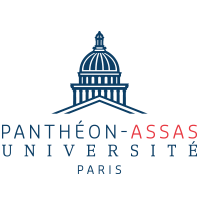The property status of freshwater: sustainable water use in Belgium, France and the Netherlands
Séminaire organisé par le CRED (Centre de recherche en économie et droit), le CERSA (Centre d'études et de recherches en sciences administratives et politiques) de l'Université et l'ENC-Team (Environment: Concepts and Norms) de l'Institut Jean-Nicod (ENS).
La prochaine séance se tiendra lundi 23 mai 2022 et aura pour thème : The property status of freshwater: sustainable water use in Belgium, France and the Netherlands
Intervention : Flore VAVOURAKIS (Institute of Property Law / KU Leuven, Faculty of Law)
La séance se déroulera en anglais.
"Sustainable freshwater use is a vital challenge of the 21st century. A growing population and industrialization result in a growing freshwater demand. At the same time, climate change causes both longer periods of droughts and of excessive rain fall. Belgium needs to adapt to more sustainable water use. While technological progress is made, there remains legal uncertainty as to who can use which water and to which extent. Clarification on this is crucial for the successful implementation of more efficient technologies. The research accommodates this need for legal theory-building. It aims to coherently describe freshwater as an object of property rights. It will thus clarify the legal qualification of freshwater throughout the hydrologic cycle (1) and the limits to the rights to use (2) and dispose (3) of freshwater.
A legal tension complicates this research: Although freshwater is considered to be a common object, not appropriable in its entirety, it is also appropriable by private and public actors as a res nullius, as part of the public domain or as part of landownership. Within the connected water system of Belgium, France and the Netherlands this research will provide a clear tool for businesses and policy-makers with blue-green ambitions. An approach of case studies and interdisciplinary dialogue is adopted from a property law perspective, a useful addition to the traditional public and international perspectives on freshwater."
ID de réunion : 925 7464 2253
Code secret : 404916
Le séminaire Law & Economics of Nature a pour vocation de prendre acte des transformations théoriques qui, dans un contexte d’inquiétude environnementale, affectent les disciplines économiques et juridiques. Les normes juridiques qui prévalent aux régimes d’appropriation ou de gouvernance des ressources naturelles ont d’évidentes conséquences welfaristes (humaines et écologiques). Les réflexions actuelles sur le ou les communs ou encore sur la personnalisation juridique d’entités naturelles peuvent également être appréciées à cette aune. L’économie de l’environnement s’interroge de longue date sur la possibilité de fixer la valeur d’entités naturelles non marchandes. Elle oscille entre la considération des ressources environnementales comme « capital naturel » sujet à optimisation et une défense de la valeur intrinsèque de la nature non commensurable à d’autres actifs.
